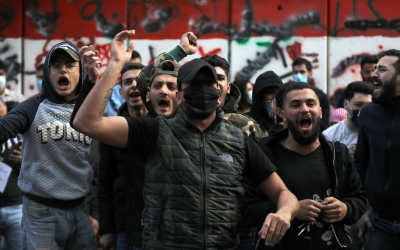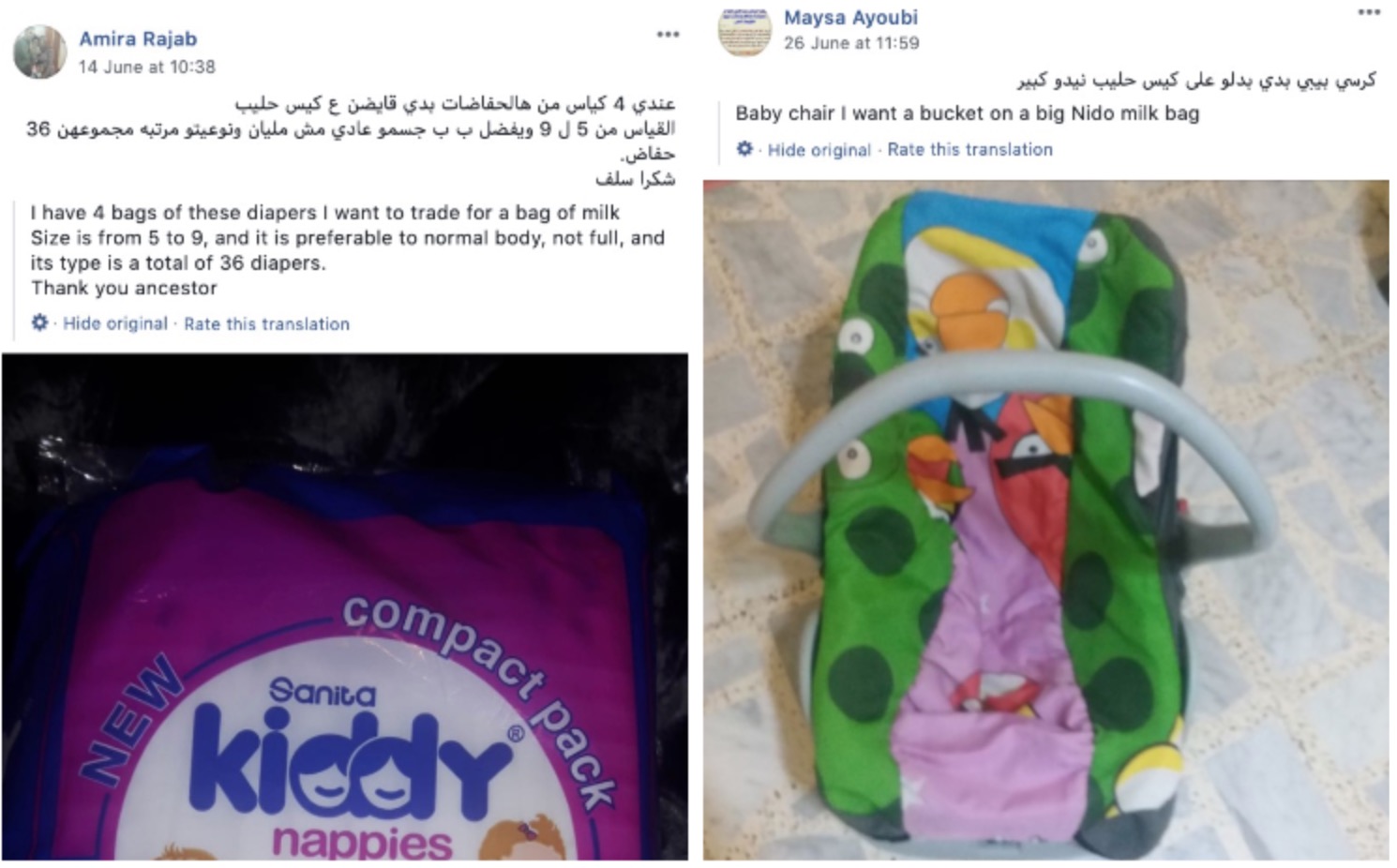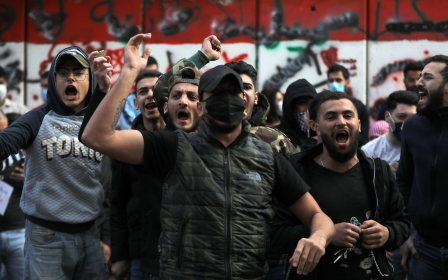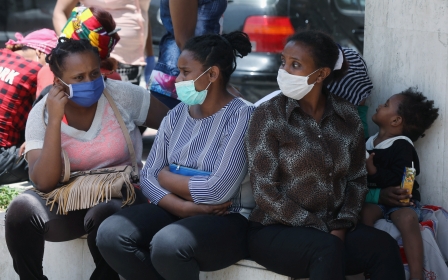Clothes for baby formula: Lebanese resort to barter amid devastating crisis
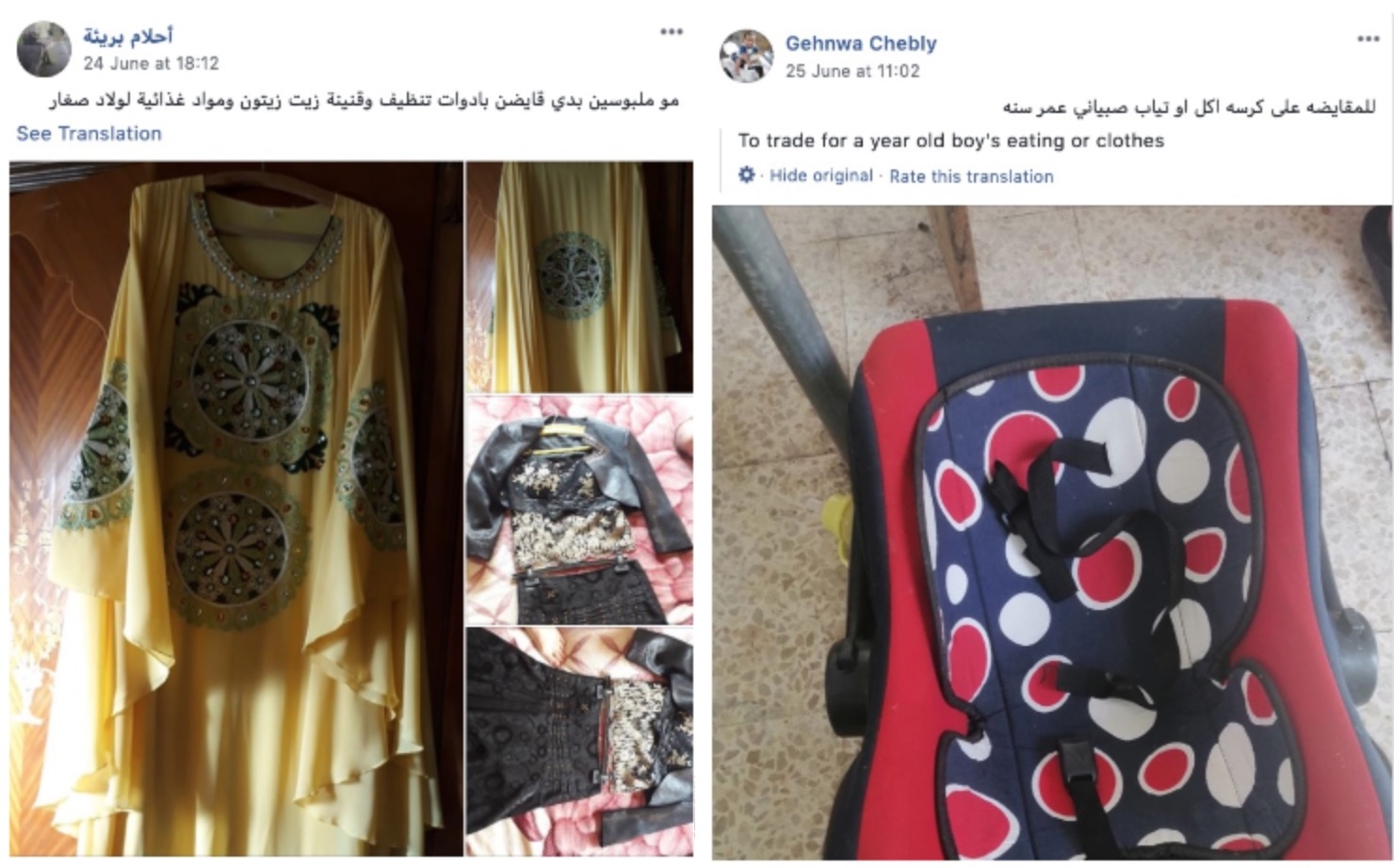
Lebanese citizens have resorted to bartering on Facebook groups to provide for their basic needs, as the country sinks deeper into an economic crisis.
A number of Facebook groups have emerged over the past few weeks, allowing people to post what they are looking for and detail what they are willing to give in return.
Lebanon is currently facing the worst economic turmoil since the 1975-1990 civil war. Last month, the devaluation of the Lebanese pound, coupled with the economic impact of the coronavirus pandemic, triggered a wave of demonstrations.
Lebanon’s currency has been in freefall since September, currently valued at more than 7,000 Lebanese lira (LL) to the US dollar, contrasting with an official pegged rate of LL1,507.
On one Facebook page called “Lebanon barters”, people can be seen posting images of items of clothing in exchange for household items such as cleaning materials and food.
In the comments section, people discuss which personal items they can trade in return for things they need, as well as where to meet to complete the exchange.
Many of the group's more than 12,000 members seek essential items for babies and children, like formula.
One member of the Facebook page offered to trade an infant's rocking chair in return for baby formula for her children, others have used it to trade bridal outfits for an electric mixer.
As the economic crisis and unemployment has been exacerbated in recent weeks, Lebanese people have found a number of different ways to meet their families' needs.
A fundraising website called To Lebanon With Love was established, allowing users to set up a profile, write about their situation and share their page for donations.
The Lebanese government estimates that 75 percent of the population is currently in need of aid.
The economic collapse started in Lebanon late last year, when banks started limiting the withdrawal of dollars, provoking a nationwide shortage. Around the same time, a popular uprising emerged denouncing political corruption and economic mismanagement.
Human Rights Watch has warned that millions of Lebanon residents are at risk of going hungry if the government does not put in place a robust plan to alleviate poverty.
The coronavirus pandemic has left many people unemployed and led many businesses to close down, leaving countless people unable to afford basic necessities.
Last month, economic conditions prompted some Lebanese families to drop domestic migrant workers outside their embassies, as families could no longer afford to keep them.
A number of Nigerian domestic workers were also seen sleeping rough on the streets of Beirut after being let go by their employees amid the economic downturn.
Lebanon is one of the world's most indebted countries and defaulted on its external borrowing for the first time in March.
Middle East Eye propose une couverture et une analyse indépendantes et incomparables du Moyen-Orient, de l’Afrique du Nord et d’autres régions du monde. Pour en savoir plus sur la reprise de ce contenu et les frais qui s’appliquent, veuillez remplir ce formulaire [en anglais]. Pour en savoir plus sur MEE, cliquez ici [en anglais].


